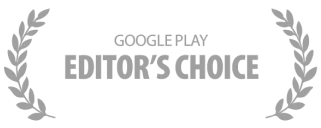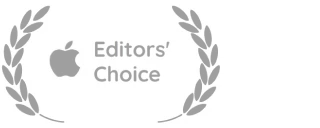

A simple app to manage your team’s tasks,
projects, clients & business workflows


Use boards to easily manage any
team, project, client or workflow
Assign tasks, sub-tasks and set
due dates to promote ownership
Get started in seconds with over
+100 custom made templates
Discuss task details in context
and keep things organized
Use kanban view to easily
manage any workflow
Use calendar view to easily track
due dates and deliverables
Track your team’s progress
visually with Table view
Create a bird-eye view for
all of your teams’ work
Centralize all your discussions
into one simple to use inbox
Add custom fields to enrich your
tasks with important context
Add tasks, attachments, reminders
and notifications in WhatsApp
Customize your notifications to get
only the updates you care about
Organize all your calendar events
and tasks in one place
Any.do works with over +6000
apps to automate your work
Streamline business processes
without breaking a sweat
Syncs across all your devices
Product designers often juggle multiple projects, each encompassing various stages from ideation to final execution. Any.do offers robust task management flows that help designers seamlessly prioritize, organize, and manage their tasks. With the ability to create hierarchies and dependencies, designers can clearly outline project milestones and ensure they meet deadlines efficiently. This structure is particularly beneficial for managing complex design projects where every minor task is interconnected. It helps visualize the bigger picture while enabling the breakdown of tasks into manageable chunks, crucial for maintaining high productivity and creativity in every project.
Collaboration is at the heart of any successful design project, and Any.do enhances this aspect with its integrated chat collaboration feature. This tool allows team members to discuss specific tasks, share feedback, and iterate designs in real-time. For product designers working in a team or with clients, this feature saves time and reduces the need for back-and-forth emails. It fosters an environment of collaborative creativity, where ideas can be exchanged instantly and actioned upon swiftly. This dynamic communication channel streamlines the workflow, ensuring clarity and precision in task execution.
Designers can greatly benefit from Any.do’s task organization into different boards tailored to each project or aspect of the design process. By compartmentalizing tasks, designers can enhance focus and productivity. Whether organizing by project phase, client, or design element, boards provide a visual overview of all ongoing works and their statuses. This feature empowers designers to maintain oversight and swiftly switch between projects without losing track of progress, ensuring that all tasks are moving forward harmoniously within the overall project timeline.
The Calendar and Scheduling features in Any.do act as the backbone of a product designer's workflow. These tools help manage appointments, project deadlines, and team meetings, ensuring that every task is aligned with the bigger picture. Designers can integrate these into their daily routines, setting reminders and scheduling focused work sessions to keep projects on track. The synchronization across devices ensures that designers are never out of the loop, regardless of their location. This leads to improved time management, a crucial factor in the fast-paced world of design.
Any.do offers several board views—calendar view, kanban view, and table view—that suit different management styles preferred by product designers. The calendar view is excellent for deadline-driven projects, while the kanban view offers a flexible, visual approach to task flows, reminiscent of a designer's storyboard. The table view provides a structured overview of tasks and timelines, akin to a design spec sheet. These customizable views allow designers to adapt Any.do to their unique workflows, enhancing clarity and focus across different projects.
The ability to add custom fields to tasks in Any.do is indispensable for product designers who need tailored specifications. Custom fields like dates, currency, progress, and more allow for detailed task definition, making it easier to track specific criteria crucial to design success. This adaptability ensures that every task is not only in the right place but also contains all the necessary information required for its completion. This level of detail aids in precise project tracking, resource allocation, and ultimately, client satisfaction.

